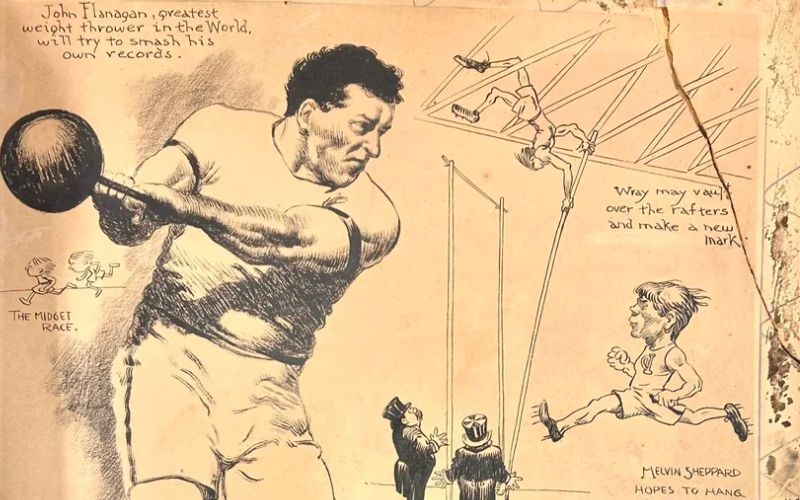We got the perfect example of what's wrong with the Irish economy last week when our air traffic controllers went on strike.
The four-hour stoppage last Wednesday shut down our three main airports, grounding 150 flights. Over 20,000 passengers were affected, with missed connections, screwed up holidays, appointments abroad that could not be kept and so on.
The disruption, irritation, even misery caused to so many people -- Irish and foreign -- was considerable. But the damage done to our international reputation, especially among the business community, was perhaps even more serious. Why would anyone come here to set up a business if the air link cannot be relied on?
Since we're an island nation we are more dependent than most countries on air transport. It's a vital link, essential for everyday life and for business. So it's not something that should be interrupted in a cavalier fashion by a small group of privileged workers.
Yet that's what happened last week. The level of disregard for ordinary people and for the economy, especially in our present circumstances, was shocking.
So if the air traffic controllers felt justified in taking such action they must have a very serious grievance, right?
Well, no actually. What is bothering them is their pay (even though they are already among the highest paid air traffic controllers in the world) and their pensions (even though they already have what is probably the best air traffic controllers’ pension scheme in the world).
They are due a 6% pay rise under their last pay agreement and they are insisting on getting that, even though most workers in the Irish economy have had to forget about agreed increases, and many have had to take pay cuts to save their jobs.
One might have some sympathy for our air traffic controllers if they were badly paid by international standards. But that is not the case. Irish controllers earn far more than their counterparts in the U.S., the U.K. and most European countries.
The top 10% of Irish controllers earn between €170,000 and €230,000 a year. The average Irish controller earns €160,000.
The average pay for controllers in the U.S. last year, excluding overtime, was $109,000 (€77,000) which is half what the tin pushers in Ireland get. In the U.K., the average pay for controllers is even lower, at £60,000 (€69,000).
So it's fair to say that the 300 Irish air traffic controllers are very well paid indeed, without the extra 6% they are demanding.
It gets even more ridiculous when you look at the generous, guaranteed pension scheme they have as semi-state workers. It's non-contributory, which means it doesn't cost them anything.
But it does cost the Irish Aviation Authority (the IAA, which runs the airports here for the state) plenty. In fact the IAA pays the equivalent of 30% of every controller's salary into their pension fund every year.
For most workers in the economy, guaranteed pensions have collapsed, even after paying heavy pensions dues over the years. Yet these guys (and gals) have guaranteed generous pensions for life, for free!
The IAA wants them to start making a contribution to the pension fund (even a modest one, like other state workers recently) but they are resisting.
So this stoppage was all about money, even though these privileged, highly-paid, semi-state workers already are doing extremely well.
The spark that caused the stoppage last Wednesday was the introduction of a new air traffic controller computer program to update the service for Irish airports and make the air traffic operation more efficient. Not without our 6% pay rise, said the controllers, and they refused to operate the system. The IAA suspended 14 of them, and the rest went on strike for four hours in sympathy.
Further stoppages were threatened, but these have new been put off following the start this week of Labor Court talks between the IAA and the controllers.
In the meantime, unnerved by the public outrage against them last week, the controllers are reluctantly operating the new system. Meanwhile, we all wait to see whether the talks will prevent further stoppages and how much the controllers will get.
In most businesses I know, particularly in these difficult times, workers are eager to get their hands on new technology, new processes and new computer programs which will make them more efficient and therefore protect their jobs. They don't demand extra payments for working the new stuff. They just get on with it.
But the air traffic controllers (and many other state or semi-state workers) are different. Efficiency doesn't matter because their factory does not close down if someone else is more efficient.
Not only that, but in the case of the controllers they are a monopoly. So they have the state -- and the rest of us on this island -- by the throat. That's why they get paid so much for work that, no matter how difficult John Cusack made it look in the movie Pushing Tin, is not nearly as complicated as they like to make out.
That kind of greedy, opportunistic, cynical attitude should have no place in Ireland today, given the challenges we face. But as I said at the start, this strike by our controllers is the perfect example of what's wrong here.
There is a disconnect between large groups of state workers here and the reality that workers in the private sector of the Irish economy now face every day. Private sector workers shape up and take pay cuts to survive.
Too many state workers in Ireland are overpaid, inefficient and ready to strike at the drop of a hat and screw up the country if anyone tries to upset their cozy arrangements.
Unfortunately, the air traffic controllers are not the only state workers who are getting ready to throw out the baby with the bath water. On Monday of this week workers across many areas of the state services -- civil servants in various government departments, nurses, teachers, prison staff etc. -- started a work-to-rule in protest against the modest cuts in their pay announced in the recent budget.
With reduced tax revenue due to the recession we can no longer pay state workers here the high salaries they negotiated during the boom. The government has to reduce the budget deficit or the country will go bust, and a large part of state spending is on pay for state workers. So there has to be cuts.
The pay cuts announced in the budget in December amounted to around one billion euro. In a desperate attempt to avoid these pay cuts, the unions offered to make up most of this by taking extra days off without pay.
This would be made possible by increased productivity, they said. They promised a "transformation program" for the way state services are delivered, aimed at big increases in efficiency saving huge amounts of money.
The government was skeptical, no deal was done and the pay cuts went ahead. And now the unions are saying that the "transformation" they offered, to improve efficiency, is off the table.
But what the rest of the workers in the economy want to know is why? In the private sector, increasing efficiency on a regular basis is accepted as essential in the battle to increase Ireland's competitiveness.
The state workers have admitted that they could be much more efficient, but now say they are not willing to co-operate with any transformation program. What part of WE CAN’T AFFORD IT do they not understand?
Before all this is over, we're going to be a very divided country, split between those on the state payroll and those in private industry. The airwaves were full of angry callers on Monday denouncing the public service workers and their work-to-rule.
The general view is that they are well paid, have cushy permanent jobs, with fantastic guaranteed pensions and that they should wake up to reality and share the pain being felt by everyone else.
Several commentators here remember what Ronald Reagan did some years back when he took on the air traffic controllers in the U.S., fired them and then rehired them at reasonable pay rates. A lot of people feel that the same strategy should be used here, if they strike again.
Apart from sorting out that particular problem, it would send a message to the rest of the state sector at the same time.




Comments